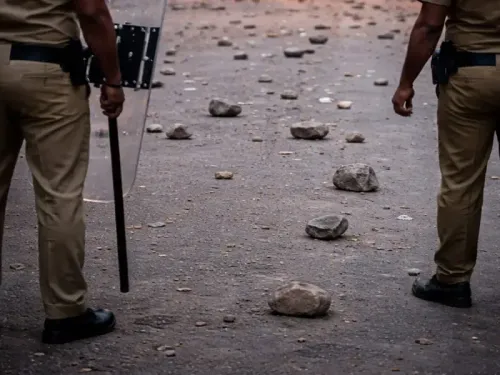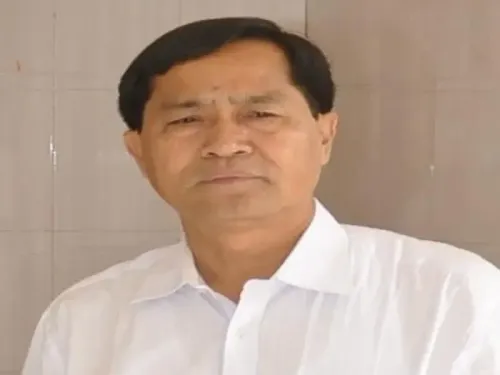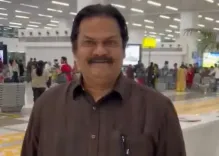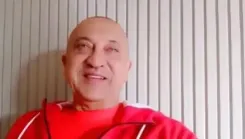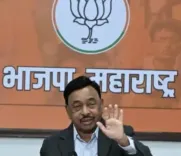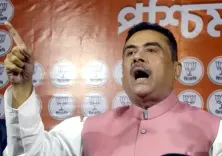What Does Prime Minister Modi's Visit to China Mean for India?
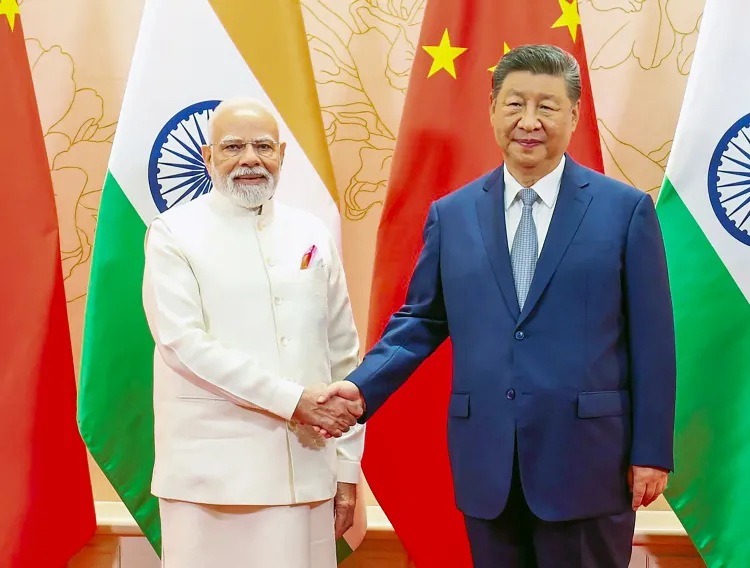
Synopsis
Key Takeaways
- India's participation in the SCO summit demonstrates its strategic autonomy.
- Modi's meetings with Xi and Putin highlight India's diplomatic efforts to enhance bilateral relations.
- The Beijing military parade showcases China's growing influence under Xi Jinping.
- India maintains a balanced approach towards China while fostering ties with the US.
- Ongoing trade negotiations with the US reflect India's commitment to economic security.
New Delhi, Sep 7 (NationPress) In today's complex geopolitics, the spotlight is on US President Donald Trump's reaction to the Shanghai Cooperation Organisation (SCO) summit, which took place in Tianjin, China, from August 31 to September 1, 2025. This includes India's relationships with the US and Russia, along with China's rise as a significant superpower alongside the US.
It's essential to note that Prime Minister Modi's trip to China for the SCO summit included crucial one-on-one discussions with President Xi Jinping of China and President Vladimir Putin of Russia, which were integral to the summit's agenda.
India's high-level participation in the SCO conference reaffirms the Modi administration's strategy of fostering bilateral friendships for the nation's security and economic advantages, showcasing India's independent stance amidst global powers. Russia has been perceived as a 'balancing' force between the US and China, with notable tension evident during the Tianjin meeting. Moreover, India conveyed to the US that Trump's 'tariff pressure' would not deter its commitment to pursue economic diversification globally. Overall, outcomes from the SCO summit have bolstered India's position in the international community. Notably, Prime Minister Modi stopped in Japan en route to China—Japan being a key member of the US-led Quad, which aims to counter China's expansionist actions in the Indo-Pacific, further emphasizing India's dedication to a 'nation first' policy.
The highlight that overshadowed the SCO summit was the spectacular military parade at Tiananmen Square, Beijing, on September 3, commemorating the 80th anniversary of Japan's World War II surrender.
The joint appearance of President Xi Jinping, President Putin, and North Korean leader Kim Jong Un sent a strong message of unity among them.
Putin referred to Kim as 'Dear Chairman of State Affairs' and expressed gratitude for North Korean troops assisting Russia against Ukrainian forces. The head of Russia’s Rosatom state nuclear corporation, Alexei Likhachev, indicated that President Putin committed to helping China surpass the US as the world's leading nuclear power producer.
The Beijing parade underscored China's leadership under Xi Jinping, showcasing its military, technological, and trade capabilities, establishing itself as a major player against US interests. In response to the parade, President Trump accused Xi Jinping of 'conspiring against the US' and reminded him of America's military supremacy. Lightheartedly, Putin remarked on Trump's apparent 'sense of humour' regarding such conspiracies. He also noted that all nations Russia engaged with in China supported the idea of a Russia-US summit in Alaska, expressing hope for a resolution to the Ukraine conflict.
Putin appeared open to peace negotiations to resolve the Russia-Ukraine war, acknowledging US efforts to settle Europe's largest land conflict since WWII and mentioning a 'certain light at the end of the tunnel.'
During his Beijing visit, Putin conveyed a message to Kyiv that opportunities exist to end the war through dialogue 'if common sense prevails', asserting his preference for that route but also readiness to use force if necessary. He expressed willingness to negotiate with Volodymyr Zelenskyy, despite the latter's imposition of Martial Law to avoid re-election and his leadership of an 'illegitimate regime'. As previously mentioned, Putin seems to balance relations between the US and China and between India and China, criticizing Trump's 'colonial era pressure tactics' on both nations regarding 'punitive' tariffs, emphasizing their status as 'powerful economies' deserving partnership.
Prime Minister Modi's visit to China after seven years has seemingly resulted in modest advancements in the ongoing effort to mend bilateral relations, which had soured due to the Galwan incident. Modi reassured that 'bilateral ties should not be viewed through a third country's perspective', while China acknowledged India's alignment with it against 'unilateral bullying'—a clear reference to Trump's arbitrary tariffs. In his meeting with Xi Jinping during the SCO summit, Modi emphasized the significance of 'peace and tranquility in border areas' for the continued development of their relationship, with Xi agreeing that border issues should not hinder diplomatic improvements. While remaining vigilant of China as a potential adversary, India can leverage flexibility to adopt a dual-track approach toward its relations with China.
In a volatile global environment, India's commitment to a multipolar world order, strategic autonomy, and its role as a prominent voice on issues of 'war and peace' and humanitarian development has proven resilient and should continue to be pursued without excessive expectations from any side. Currently, trade negotiations between India and the US remain stalled, with the sixth round originally set for August 25 postponed due to tariff escalations.
Nonetheless, Indian Commerce Minister Piyush Goyal, leading negotiations on the Indian side, expressed optimism about reaching a trade agreement soon. Meanwhile, President Trump stated on September 3 that there would be no reduction in the punitive tariffs on India, but simultaneously affirmed that 'we have a good relationship with India'. India labeled these tariffs as 'unjustified and unreasonable', yet has asserted its commitment to safeguard 'its national interests and economic security'.
India is exercising strategic patience in addressing Trump's 'transactional' approach to diplomacy. Upholding its sovereignty in oil purchases from Russia, India is utilizing the existing framework of understanding with Russia to navigate trade matters. Furthermore, India is exploring opportunities to diversify its trade relations with countries across Europe, the South, and Eurasia. A cautious approach to India-China trade relations is prudent, as a new era of diplomatic engagement unfolds, and India is well-placed to capitalize on it.
Prime Minister Modi's visit to Tianjin for the SCO summit did not fundamentally change the underlying atmosphere of distrust and hostility characterizing India-China relations, which stem from border disputes, China's military support to Pakistan during conflicts, and the expansion of Chinese influence in India's vicinity. Despite Trump's imposition of 'punitive' tariffs on India regarding Russian oil imports, the overall relationship between India and the US-Israel alliance remains robust.
President Putin reportedly shared his positive impressions of the Alaska summit with Prime Minister Modi. The goodwill triangle involving the US, Russia, and India largely remains intact. Trump's critical comments about the SCO can be interpreted as disapproval of China's efforts to assert itself as a second superpower. Trump draws a distinct line between Putin and Xi Jinping. All these dynamics empower India to strategically navigate its diplomatic landscape, preserving its interests while enhancing its stature as a significant player on the global stage.
(The writer is a former Director of the Intelligence Bureau)


